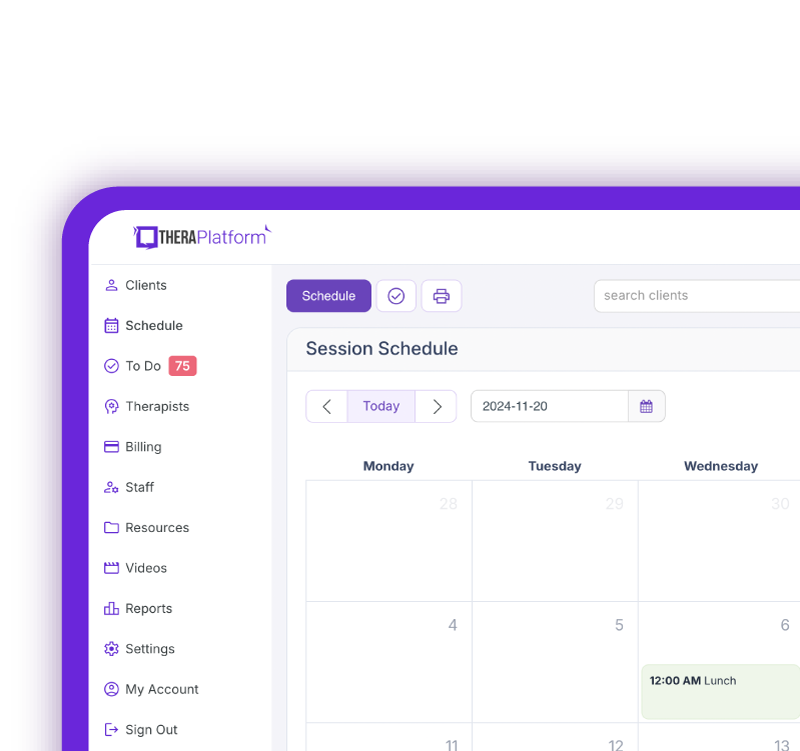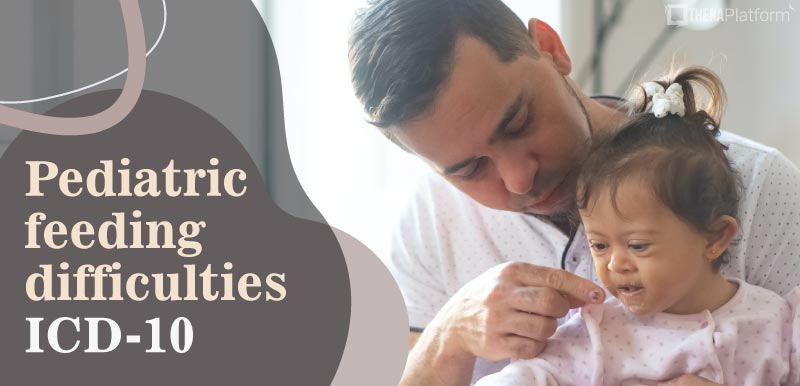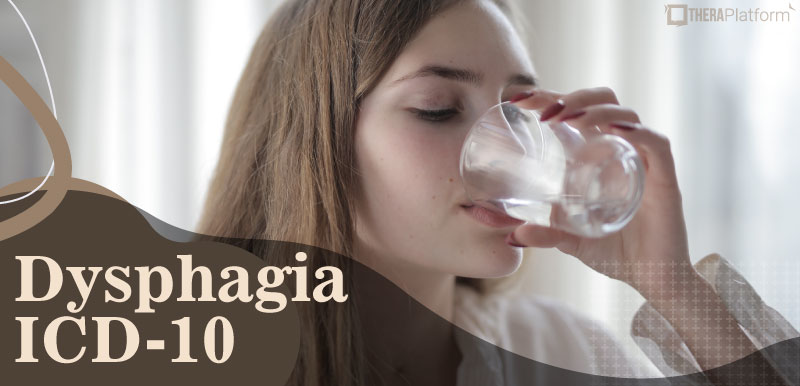Expressive language disorder ICD-10 codes

Expressive language disorder ICD-10 is one of the many codes that speech-language pathologists use in daily documentation like referrals, therapy notes, and evaluation reports. Whether you’re an SLP working in a health care setting or private therapy practice, it’s important to know the correct express language disorder ICD-10 codes.
Summary
- ICD-10 Code F80.1 is used by speech-language pathologists (SLPs) to diagnose expressive language disorder, a condition involving difficulty using spoken, written, or symbolic communication systems. Enrolling in an insurance billing course for therapists can help providers enhance their knowledge.
- Accurate use of ICD-10 codes is critical for HIPAA compliance and insurance reimbursement. Incorrect or outdated codes can lead to claim denials.
- Expressive language disorder affects both children and adults and can stem from developmental delays, brain injury, or neurological conditions. It may present as limited vocabulary or difficulty forming grammatically correct sentences.
- EHR systems with integrated billing features, like TheraPlatform, help automate tasks such as claims, invoicing, and payment tracking—saving therapists significant time and reducing billing errors.
→ Click here to enroll in our free on-demand Insurance Billing for Therapists video course [Enroll Now]
One of the most commonly used ICD-10 codes for speech-language pathologists is the Expressive Language Disorder ICD-10. This code is F80.1.
Before getting into the details about this code, some SLPs might need a refresher on what ICD-10 is exactly. Learn why it’s imperative for SLPs to be familiar with ICD-10 codes, know how to use them, and keep up with changes to codes.
Let’s explore the answers to all of those questions and talk about Expressive Language Disorder ICD-10 codes commonly used by SLPs.
Streamline your insurance billing with One EHR
- Claim batching
- Auto claims
- Automated EOB & ERA
- Real-time claim validation
- Real-time claim tracking
- Aging and other reports

What is ICD-10?
ICD-10 is owned by the World Health Organization (WHO), and stands for the International Classification of Diseases, 10th Revision. It’s the official system used in the United States to assign health care codes that correspond to various diagnoses and procedures.
ICD-10-CM is included under ICD-10. The “CM” (Clinical Modification), was developed by the CDC (Centers for Disease Control & Prevention) to be used across U.S. healthcare settings. On October 1, 2021, the most current, 2022, edition of the ICD-10-CM codes became effective.
We know what you’re thinking. All of these acronyms are enough to make an SLPs head spin. But not to worry! Here’s what you really need to know.
SLPs are required to use ICD-10 codes when diagnosing clients and charging for procedures in order to comply with HIPAA regulations and for payment by Medicare, Medicaid, and private insurance companies.
Lacking knowledge of the ICD-10 codes pertinent to your clients and a failure to stay up to date on the latest changes could result in insurance denials for your practice.
What is Expressive Language Disorder ICD-10?
One of the most frequently used ICD-10 codes encountered by SLPs is for the diagnosis of an Expressive Language Disorder. This ICD-10-CM code is F80.1.
According to the American Speech Language Hearing Association (ASHA), speech-language pathologists should choose the Expressive Language Disorder ICD-10 code(s) that “provide the greatest degree of accuracy and completeness”.
Meaning, it’s crucial to know the specific characteristics of a given diagnosis and to be sure that these characteristics accurately describe your client’s difficulties.
An Expressive Language Disorder is a disorder characterized by difficulties using language to communicate.
ASHA further describes an Expressive Language Disorder as an impairment in the “use of a spoken, written, and/or other communication symbol system (e.g., ASL)”.
An Expressive Language Disorder may involve:
- Difficulties with Language Form (phonology, morphology, syntax)
- Impairments of Language Content (semantics)
- Use of Augmentative & Alternative Communication (AAC) for certain clients.
This disorder can be seen across the lifespan, in clients who range in ages from toddlers to adults.
Watch this video to see how TheraPlatform’s EHR saves time on insurance billing
A young child with an Expressive Language Disorder may have a limited vocabulary, and not speak as many words as expected for their age. School-aged children with this disorder can show characteristics such as difficulty putting words together with correct grammar in order to effectively communicate their wants, needs, and thoughts to others. Adult clients with an Expressive Language Disorder may have difficulty using language due to a traumatic brain injury, stroke, or progressive disorder. An Expressive Language Disorder can range in severity, from mild to severe.
What does Expressive Language Disorder ICD-10 code CM F80.1 include and exclude?
The criteria symptoms for the ICD-10-CM diagnosis of F80.1 Expressive Language Disorder include the following:
- Aphasia (amnestic) (global) (nominal) (semantic) (syntactic); expressive type
- Development: Delayed language skills (expressive)
- Disorder (of):
- Developmental language
- Language (developmental)
- Dysphasia: Developmental expressive type The exclusions for Expressive Language Disorder ICD-10 code F80.1 include:
- Dysphasia or Aphasia NOS
- Acquired Aphasia with Epilepsy
- Pervasive Developmental Disorders
- Intellectual Disabilities
- Selective Mutism
- Mixed Receptive-Expressive Language Disorder The above disorders have other specific ICD-10 codes that SLP’s should refer to when completing documentation such as evaluations and treatment notes.
Practice Management + EHR + Telehealth
Manage more in less time in your practice with TheraPlatform

Prevalence of an Expressive Language Disorder
Most SLPs working in a healthcare or private setting have clients with an Expressive Language Disorder on their caseload. The disorder can be considered common in both children and adults in the United States. According to data from the National Institute on Deafness and Other Communication Disorders, nearly 1 in 12 (7.7%) children in the U.S. between the ages of 3-17 has had a disorder related to voice, speech, language, or swallowing within the past 12 months. In regards to language in specific, government statistics report that over 3% of children in the U.S. have had a language disorder in the past 12 months that lasted at least 1 week. Language disorders frequently occur in the adult population as well. Currently about 1 million individuals in the U.S. have Aphasia. Certain types of Aphasia are coded under the Expressive Language Disorder ICD-10 code F80.1.
When do Expressive Language Disorder ICD-10 codes or other codes change?
ICD-10 codes are updated annually. They are released and effective October 1st each year, and it’s important for SLPs to stay up to date with the changes in order to maintain compliance with HIPAA and insurance requirements.
What’s the easiest way for therapists to find accurate information on the latest ICD-10 code updates?
The Centers for Medicare & Medicaid Services (CMS) provide several coding resources on their website. These include an ICD-10 code lookup tool. The CDC (Center for Disease Control and Prevention) also offers an ICD-10-CM Lookup tool. This allows providers to search for specific codes or disorders for the current fiscal year.
Speech-Language Pathologists can utilize resources through ASHA (the American Speech Language Hearing Association) for guidance on coding, such as when to use the F80.1 Expressive Language Disorder ICD-10 code.
Expressive Language Disorder ICD-10 codes are important for SLPs to have up-to-date knowledge on in order to comply with HIPAA and Insurance requirements.
Practice Management + EHR + Telehealth
Manage more in less time in your practice with TheraPlatform

How EHR and practice management software can save speech therapists time on billing and insurance
EHR with integrated billing software and a clearing house, such as TheraPlatform, offers speech therapists significant advantages in creating an efficient insurance billing process. The key is minimizing the amount of time dedicated to developing, sending, and tracking medical claims through features such as automation and batching.
What are automation and batching?
- Automation refers to setting up software to perform tasks with limited human interaction.
- Batching or performing administrative tasks in blocks of time at once allows you to perform a task from a single entry point with less clicking.
Which billing and medical claim tasks can be automated and batched through billing software?
- Invoices: Create multiple invoices for multiple clients with a click or two of a button or set up auto-invoice creation, and the software will automatically create invoices for you at the preferred time. You can even have the system automatically send invoices to your clients.
- Credit card processing: Charge multiple clients with a click of a button or set up auto credit card billing, and the billing software will automatically charge the card (easier than swiping!)
- Email payment reminders: Never manually send another reminder email for payment again, or skip this altogether by enabling auto credit card charges.
- Automated claim creation and submission: Batch multiple claims with one button click or turn auto claim creation and submission on.
- Live claim validation: The system reviews each claim to catch any human errors before submission, saving you time and reducing rejected claims.
- Automated payment posting: Streamline posting procedures for paid medical claims with ERA. When insurance offers ERA, all their payments will post automatically on TheraPlatform's EHR.
- Tracking: Track payment and profits, including aging invoices, overdue invoices, transactions, billed services, service providers.
Utilizing billing software integrated with an EHR and practice management software can make storing and sharing billing and insurance easy and save SLPs time when it comes to insurance billing for therapists.
Streamline your practice with One EHR
- Scheduling
- Flexible notes
- Template library
- Billing & payments
- Insurance claims
- Client portal
- Telehealth
- E-fax

Resources
TheraPlatform is an all-in-one EHR, practice management, and teletherapy software built for therapists to help them save time on admin tasks. It offers a 30-day risk-free trial with no credit card required and supports different industries and sizes of practices, including speech-language pathologists in group and solo practices.
More resources
- Therapy resources and worksheets
- Therapy private practice courses
- Ultimate teletherapy ebook
- The Ultimate Insurance Billing Guide for Therapists
- The Ultimate Guide to Starting a Private Therapy Practice
- Insurance billing 101
- Practice management tools



